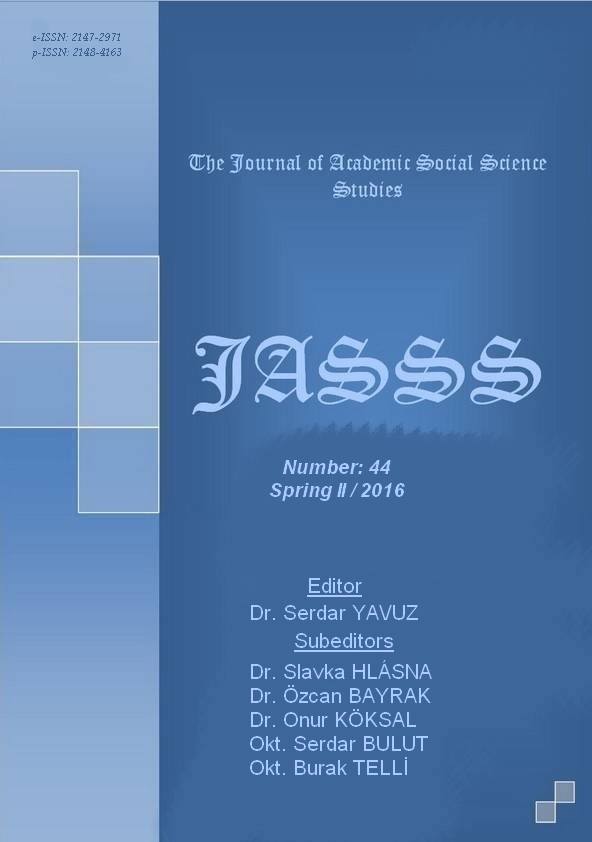TÜRKİYE’DE 24 OCAK KARARLARI İLE BAŞLAYAN FİNANSAL SERBESTLEŞMENİN GÜNÜMÜZ İKTİSADİ VE MALİ YAPISINA YANSIMALARI
Author :
Abstract
1940’lı yıllarda başlayan ve 1980’li yıllarda sıkça kendinden bahsettiren küreselleşme olgusu günümüzde gerek iktisat politikalarının gerekse siyasal yapının ana gündemini oluşturmaktadır. Dünya ekonomisini oluşturan sosyal ve iktisadi parçaların, birbirleriyle ve/veya dünya piyasalarıyla eklemlenmesi olarak ifade edilen küreselleşme, iktisadi açıdan finansal piyasaları ayıran sınırların ortadan kalkması ve uluslararası sermaye akımlarının hız kazanması (serbestleşmesi) sürecidir. Tam anlamıyla bir tanım yapacak olursak finansal serbestleşme, devletin gerek para ve maliye politikası araçlarıyla gerekse diğer farklı baskı unsurlarıyla finansal sistemin kendiliğinden işleyişine engel teşkil eden kısıtlamaların ve/veya müdahalelerin ortadan kaldırılması ve böylece finansal piyasa mekanizmasına işlerlik kazandırılması olarak ifade edilebilir. Finansal serbestleşme hareketi, teorik temellerini esas olarak neo-liberal politikalardan almaktadır. 1970’li yılların sonlarından itibaren küresel dünyada ivme kazanan finansal serbestleşme politikaları, 24 Ocak 1980 Kararları ile Türkiye gündemine girmiştir. Ülkemizde 24 Ocak Kararları ile başlayan serbestleşme üç safhada büyük ölçüde tamamlanmıştır. Bunlardan ilki; mal ve hizmet ticaretinin serbest bırakılması, ikincisi; faiz oranları üzerindeki kısıtlamaların kaldırılması ile sağlanan yurtiçi finansal serbestleşme, üçüncü olarak da; sermaye hareketleri üzerindeki tüm kısıtlamaların kaldırılması ile tamamlanan dış finansal serbestleşmedir. Bu çalışmanın amacı, finansal serbestleşmenin ilk adımı olan 24 Ocak 1980 kararlarının sonuçlarını değerlendirmektir. Ayrıca bu düzenlemeler ile entegre olunmaya çalışılan finansal serbestleşmenin günümüz iktisadi ve mali yapısına ne gibi yenilikler getirdiğini değerlendirmektir.
Keywords
Abstract
Starting in the year 1940 and is the often talked about the globalization of today's self-needed economic policies both in the political structure of the main agenda in the 1980s. Social and economic components that make up the world economy, with each other and / or expressed in the articulation with the world market globalization, the disappearance of the economic aspects of the financial markets that separates the border and speed to win the international capital flows (liberation) is the process. Will give a definition literally happen if financial liberalization, the state should monetary and fiscal policy instruments with both other different print elements with the restrictions that hinder the spontaneous functioning of the financial system and / or the elimination of intervention and thus can be expressed as to ensure the functioning of the financial market mechanisms. Financial liberalisation programme took its theoric basis from neo-liberal policies. Financial liberalisation programme which gaining acceleration at the end of 1970s came Turkey’s agenda with decisions of 24 january 1980. Liberalisation was widely completed in three step in our country. First of them was liberalisation of goods and service trade, second one was domestic financial liberalisation that was provided with the removing restrictions on interest rates, third and last one was foreign financial liberalisation that was completed with removing restrictions on capital movement. The aim of this study, is to evaluate the results of the decision of 24 January 1980 which is the first step in financial liberalization. Furthermore, is to evaluate what kinds of innovations brought to todays economic and financial structure, financial





